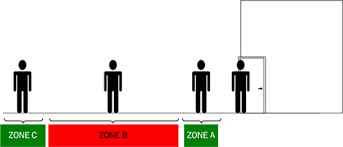Door Holding Etiquette: The Pros and Cons of the Different Approaches

Door Holding Etiquette: The Pros and Cons of the Different Approaches
September 10, 2019
When exiting the Connelly Center, students are often faced with one of their toughest choices of the day. Perhaps out of an Augustinian calling, many students go out of their way to ensure that the person behind them will not have to suffer the indignity of having to open their own door. In fact, some students have resorted to explaining that when the person behind them is beyond a certain distance, that if they had been closer that they would have held the door for them.
However, at many buildings, Connelly in specific, the issue of when to thank their Wildcat brother or sister is a pressing one. There is a social contract unknowingly signed upon entering campus, you’ll hold the door for the people behind you and you shall be thanked for your service. When the thank you should be rendered for the act of kindness is a source of much contention.
Some of the editorial staff feel that the thank you should be reserved until the second door has been held for them, thus incentivizing the person holding the door to not shirk their duties. This vocal minority on the staff is dwarfed by the overwhelming contingent of staff who feel that the thank you should be granted once the first door has been held.
Expressing gratitude after the first or the second door is more palatable than the non thank you or the weak double thank you. A consistent lack of gratitude could lead to possible ostracization. Perhaps more insidious is the impact of consistently thanking the person holding the door for you twice. Villanovans are very perceptive. They will smell the weakness and act correspondingly. For instance, when splitting a muffin, the student who gives the double thank you’s will get the smaller half every time and their less desirable flavor. Be grateful and be strategic Villanovans.

